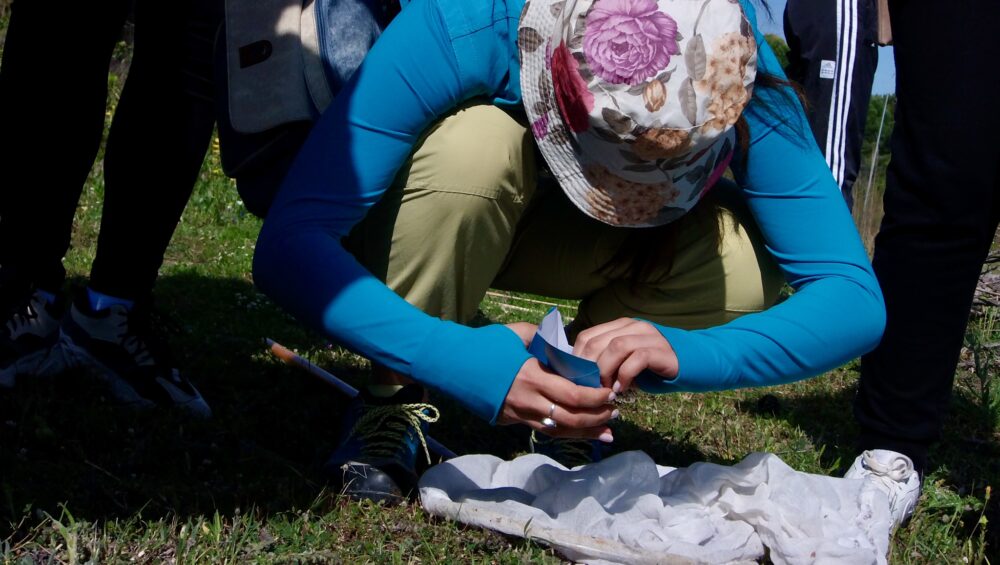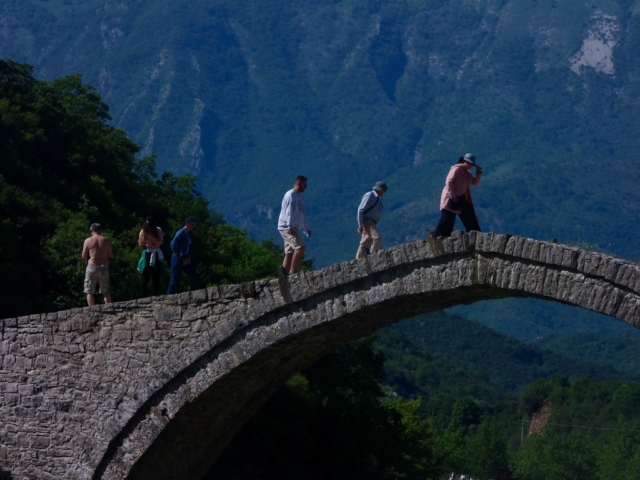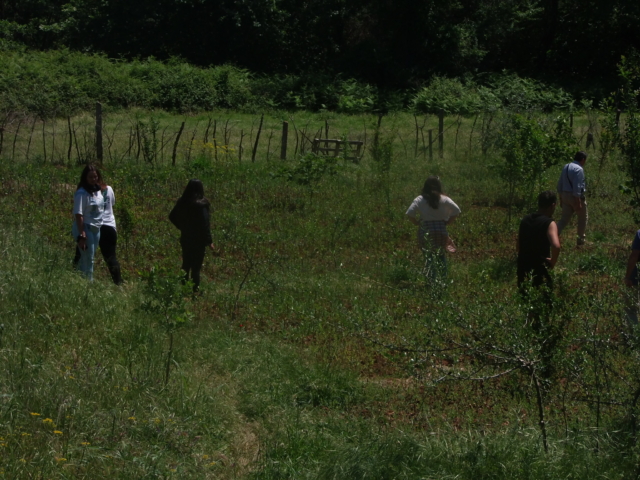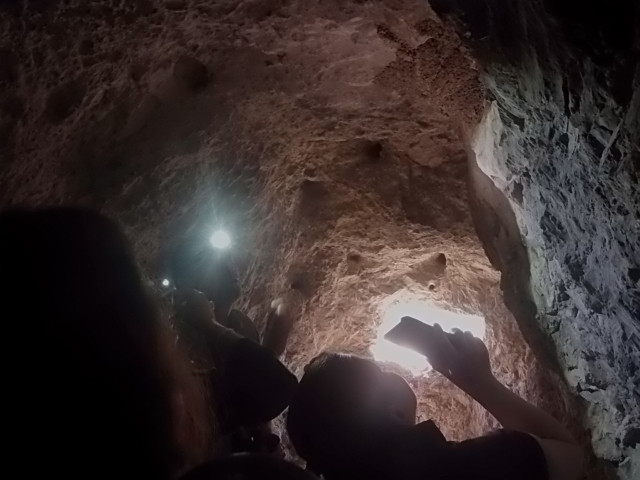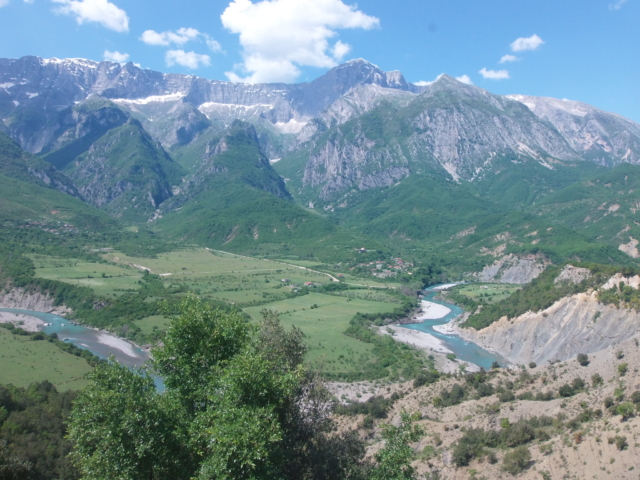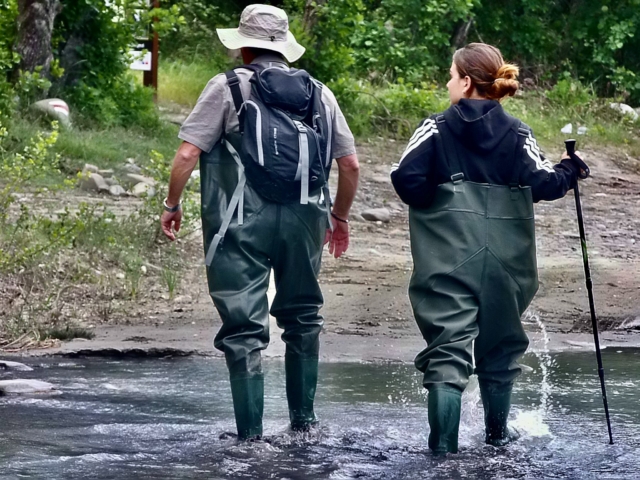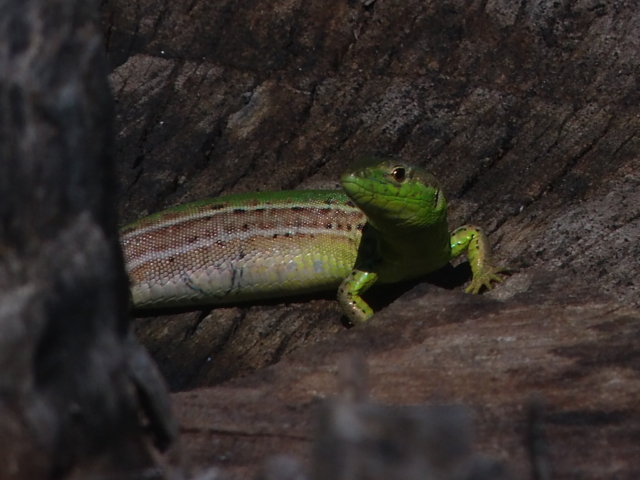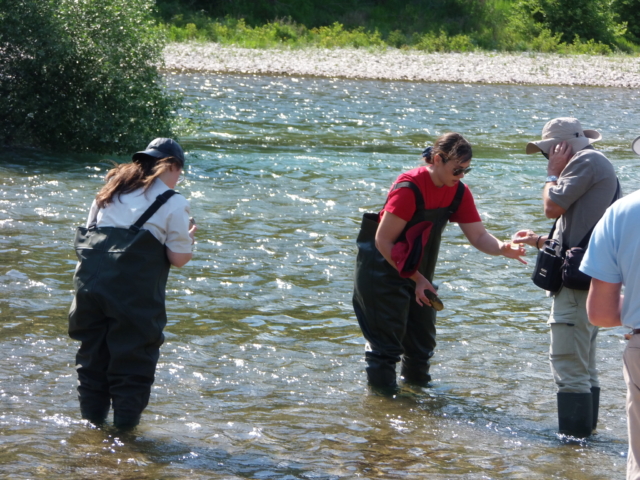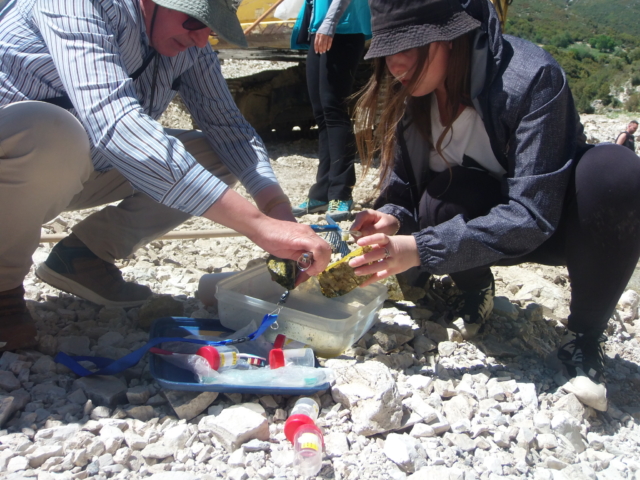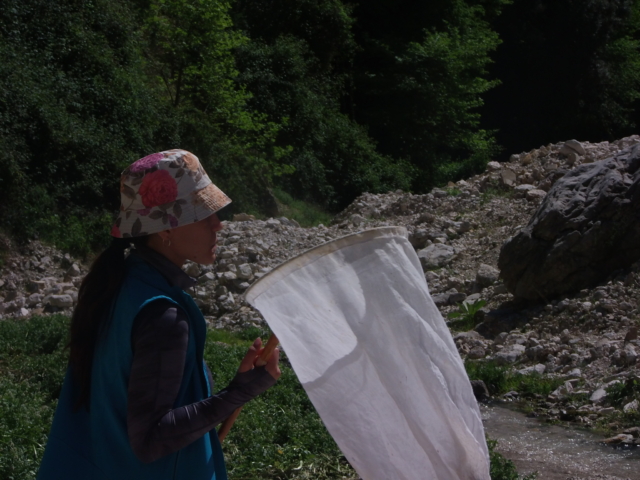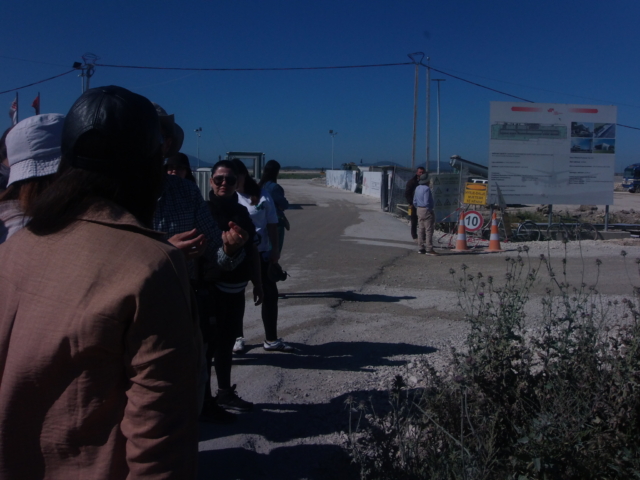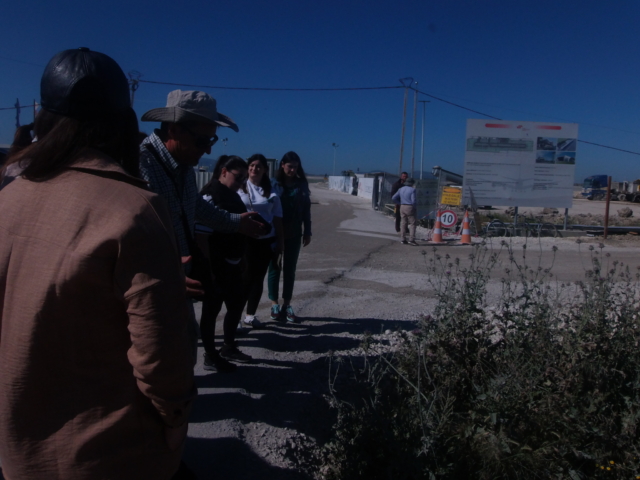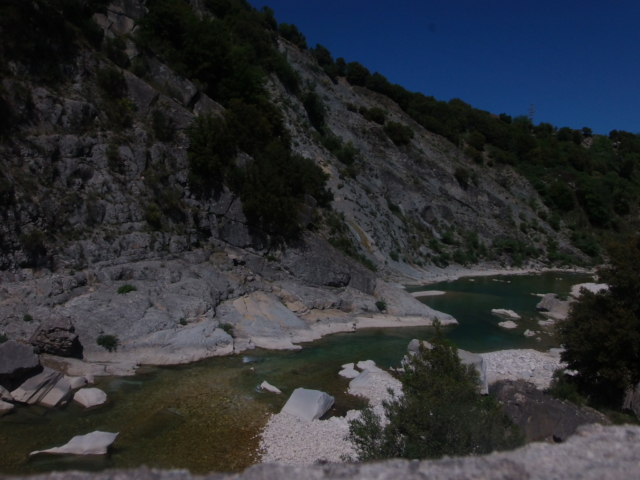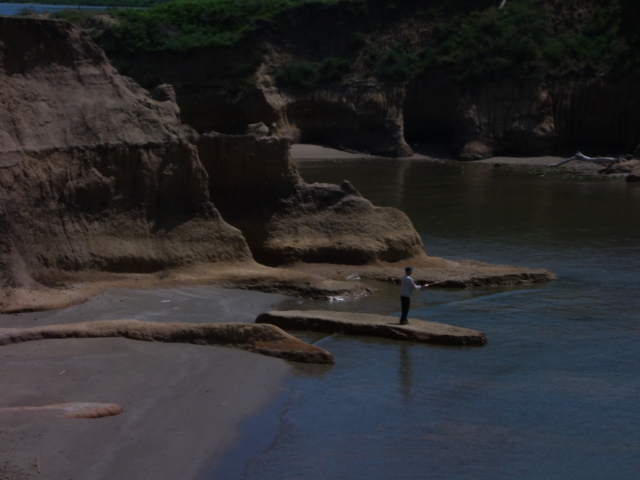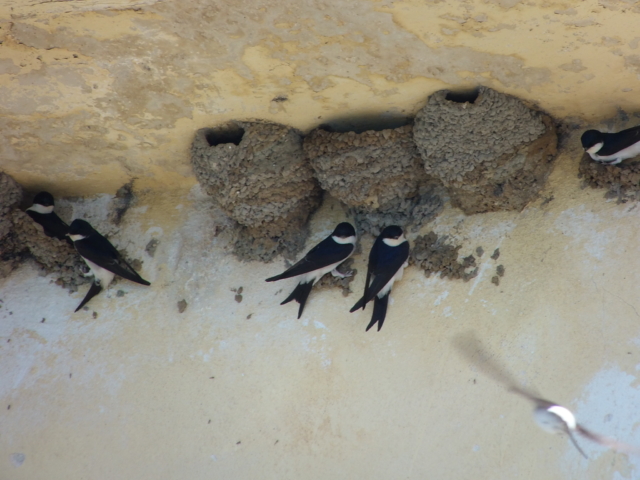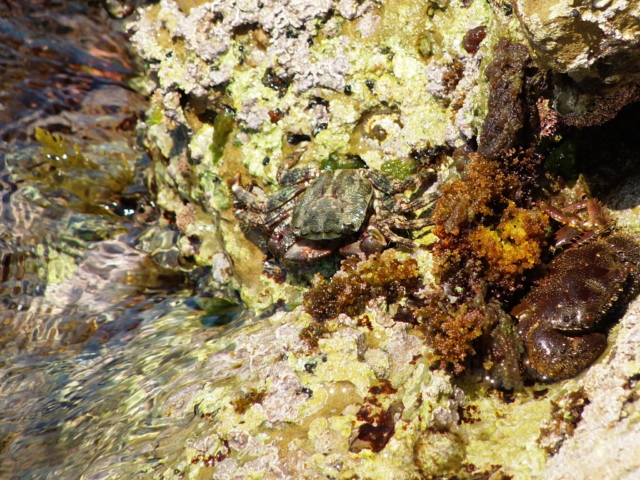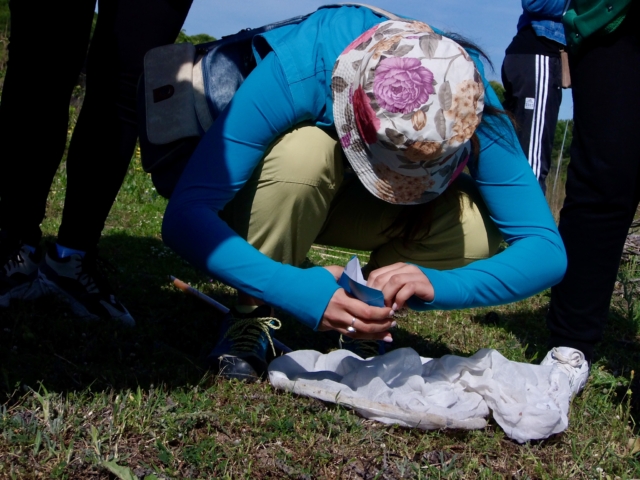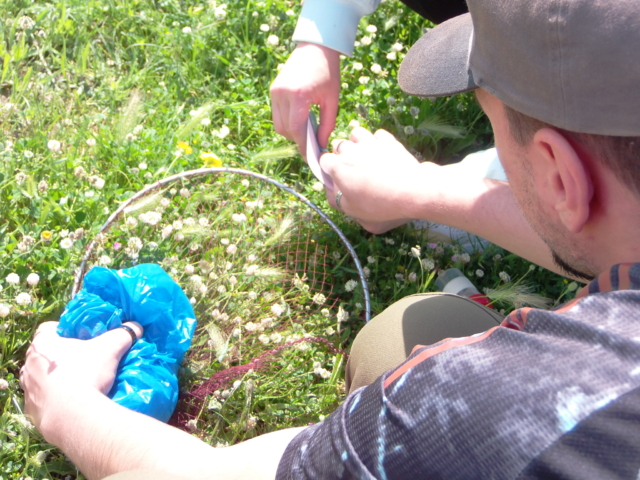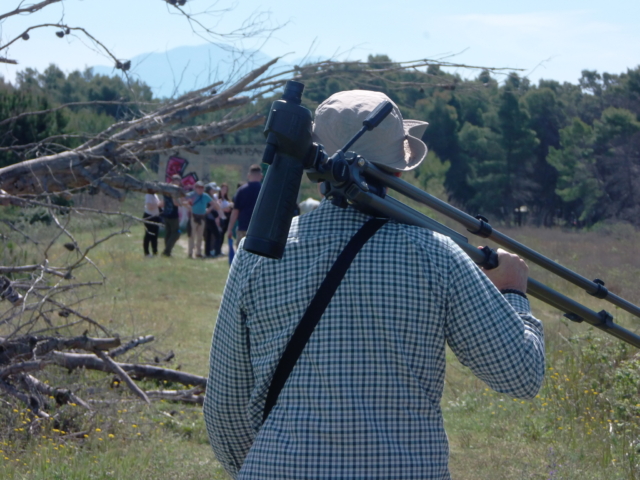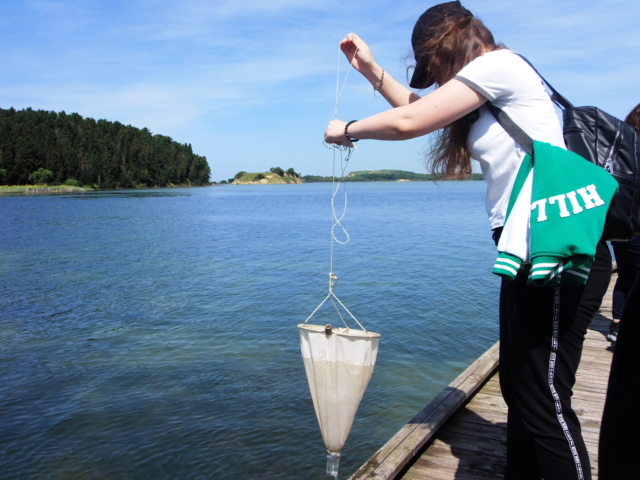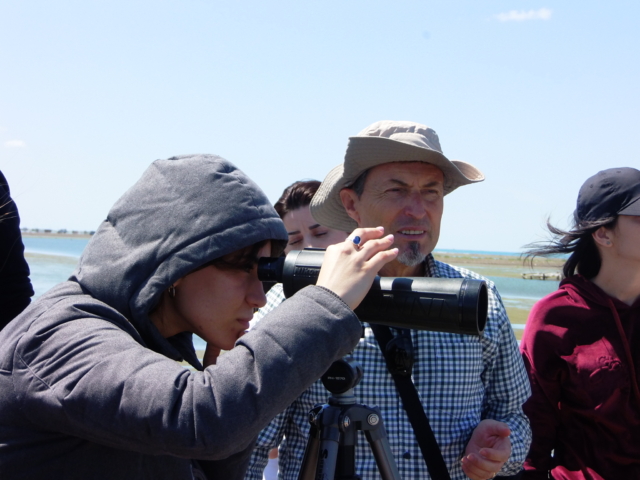Vjosa valley, April 28th – May 3rd 2025. This year as well, Scientists for Vjosa organized the Vjosa Science Week — an interdisciplinary activity that followed an extensive itinerary along the entire course of the river, from its delta to the upper reaches near the border with Greece.
The event brought together professors and students from the Faculty of Natural Sciences and the Faculty of Geology and Mining, along with scientists from the University of Vienna (Austria), who contributed with their research expertise and collaborated on-site with Albanian colleagues and students from bachelor and master programs in Environmental Biology and Natural and Environmental Sciences.
The itinerary included key ecological and geological sites such as: Mifoli Bridge, Soda Forest, Narta Lagoon, the Vlora Airport area, Shushica, Lekdush, Bënça, the Drino Valley (with stops in Lekli, Uji i Ftohtë, Virua, Kordhocë, Gjirokastër), Këlcyra, Përmet, the Langarica Thermal Baths, and the Leskovik Hot Springs, concluding with a visit to the Vjosa Research Center.
Throughout the week, students and researchers engaged in hands-on fieldwork, conducting biological and geological monitoring along the river and its tributaries. Activities included sampling key biological indicators such as phytoplankton, insect and butterfly capture, and observation of bird species, amphibians, reptiles, and fish — as well as the study of geological formations and structures in the landscape.
Special attention was given to the impact of human activities on the ecosystem, with a notable stop near Vlora Airport, where participants observed a concrete example of the challenges facing this fragile environment.
The scientists focused thier research also to the importance of Vjosa’s tributaries — including the Shushica, Bënça, and Drino rivers — highlighting their ecological significance and the threats they face.
The final visit to the Vjosa Research Center offered a meaningful conclusion to the week, emphasizing not only the role of scientific research but also the importance of continued academic and civic engagement in protecting the unique natural values of Europe’s last wild river.


